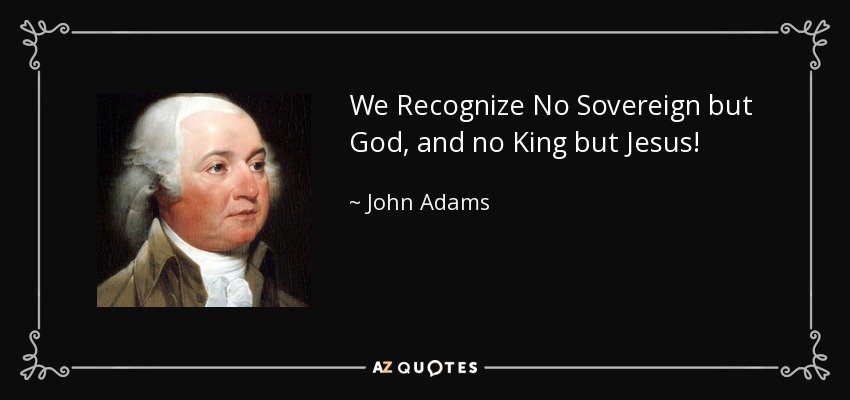I don't know about you, but I have been finding myself challenged in my walk with Christ. I love Him. And I never want to do anything that would put up walls between us.
Challenge, or difficulty, creates a space of discomfort. If you're like me, discomfort is not something we hope to experience. But Paul instructs, "Rejoice in hope, be patient in tribulation, be constant in prayer" (Romans 12:12 ESV).
What does this have to do with the Lord's Prayer? More specifically, the final line, "For Yours is the kingdom and the power and the glory forever. Amen" (Matthew 6:13b)?
From the beginning of this study, we learned that Jesus instructed his disciples to go into the "secret place" or their "closet" and pray where they would not be seen, where no one knew of their contribution to the spiritual realm. Jesus was not impressed by those who performed good deeds to be seen. "They have received their reward," he said (Matthew 6:2, 5).
It's easy to act Christ-like when performing before an audience. But integrity isn't proven in the public square. It's how a person is when no one is looking that reveals their true character. The Cambridge Dictionary defines integrity as "the quality of being honest and having strong moral principles" (Cambridge Dictionary, Integrity n.d.).
 |
| Charles Marshall |
And this is ultimately what is required in order to fulfill Jesus' instructions to us, to be unlike the hypocrites. Throughout Scripture, we are commanded to come out and be separate from them. Not only did Jesus speak out about those seeking to be seen when doing "righteous acts" to be seen by men, He put a finger on those praying on the street corners, using many, and often repetitious words, thinking they would be heard for their vast vocabulary (Matthew 6: 5-6).
So is praying this iconic prayer vain repetition?
Only if you say it out of duty rather than devotion and a heart to live it out.
When we seek to live for Christ, live out the Lord's prayer by making it personal, knowing that when I pray "Your kingdom come, Your will be done on earth as it is in heaven," (Matthew 6:10-11), He will answer my prayer. It is His will that His kingdom fill my heart and that I grow and change to become more like Him every day. In order to become more like Him, I will need to take up my cross DAILY and follow Him (Matthew 16:24). The cross is the place where my flesh with its desires for self dies. It's the place of discomfort and change.
It's where growth will begin.
King Solomon was known as the wisest of all kings. He had great wealth and honor around the world. Dignitaries from all over came to see his wealth. But he didn't come by this on his own. As a young king, he asked of the LORD to grant him wisdom. And the LORD poured out upon him more than he could've imagined. At the end of his life, he'd amassed so much, including more than 700 wives, many of whom enticed him away from his devotion to the LORD. Once he'd spent his life on folly, we can see through his writings in Ecclesiastes that he realized his error. He closes this book with "Let us hear the conclusion of the whole matter: Fear God and keep His commandments, for this is man's all. For God will bring every work into judgment, including every secret thing, whether good or evil" (Ecclesiastes 12:13-14).
Even Solomon in all his splendor realized his source was God alone.
When studying to gain depth to the last line of the Lord's Prayer, I found one commentator who stated there isn't much study on this part. He reasoned that this lack was likely do to the inconsistency of its appearance across translations of Scripture. Many scholars don't believe it was part of the original.
Personally speaking, to close the prayer with this doxology seals it up. It begins with adoration and ends with adoration. And the Lord is woven throughout the prayer.
Yes, the middle parts are requests for provision and safety, but one might argue as stated in previous lessons that Jesus is the one who provides these things. Jesus is the bread of life. Jesus is our strong tower. Jesus is our rest. He is our healer, redeemer, and soon coming King. And when he comes:
"After this I heard what seemed to be the loud voice of a great multitude in heaven, crying out, Hallelujah! Salvation and glory and power belong to our God,"
and then
"Hallelujah! For the Lord our God the Almighty reigns. Let us rejoice and exult and give Him glory, for the marriage of the Lamb has come, and His Bride has made herself ready; it was granted her to clothe herself with fine linen, bright and pure--"
... for the fine linen is the righteous deeds of the saints (Revelation 19:1, 6-8).
 |
| Courtesy Google Images |
Then I saw heaven opened, and behold, a white horse! The one sitting on it is called Faithful and True, and in righteousness he judges and makes war. His eyes are like a flame of fire, and on his head are many diadems, and he has a name written that no one knows but himself. He is clothed in a robe dipped in blood, and the name by which he is called The Word of God. And the armies of heaven, arrayed in fine linen, white and pure, were following him on white horses.
From his mouth comes a sharp sword with which to strike down the nations, and he will rule them with a rod of iron. He will tread the winepress of the fury of the wrath of God the Almighty. On his robe and on his thigh he has a name written, King of kings and Lord of lords" (Revelation 19: 11-16).
Jesus is the way, the truth, and the life. He conquered death and hell.
I cannot claim even a sliver of His great power; although, through Him I can walk in His power and authority. Without Him I can do no good thing.
So, attribution of glory and power goes to the One who alone deserves it.
And we shouldn't find it strange when, endeavoring to wrap ourselves in His glory, we become aware of the oppression around us, threatening to weigh us down in anxiety and stress. Instead, we can settle into His cloak of righteousness and rest while He wields His sword against our enemy, the devil.As mentioned at the beginning, I've been challenged in my journey with Christ these past few weeks. I firmly believe that the teacher always has the opportunity to learn (through experience) the lessons they are sharing. (It lends to credibility.)
During a personal and professional storm, I found myself holding to frustration and anger towards people, forgetting that "we do not wrestle against flesh and blood, but against the rulers, against the authorities, against the cosmic powers over this present darkness, against the spiritual forces of evil in the heavenly places" (Ephesians 6:12), But once the Lord reminded me, I took up my armor once again, remembering that it is He who is my shield of faith, helmet of salvation, sword of the Spirit, belt of truth, breastplate of righteousness, and my shoes that keep me ready to carry the gospel of peace wherever I go (Ephesians 6: 12-20).
Whether the storm continues to rage for any of us, we are invited to rest in the presence and power of Jesus. And through it all, He will be glorified, magnified, and seen by all who see how He leads us through the roughest waters.
And as we look upon His glory, we will be changed to be more like Him.
Until next time, Karlene J 💝












